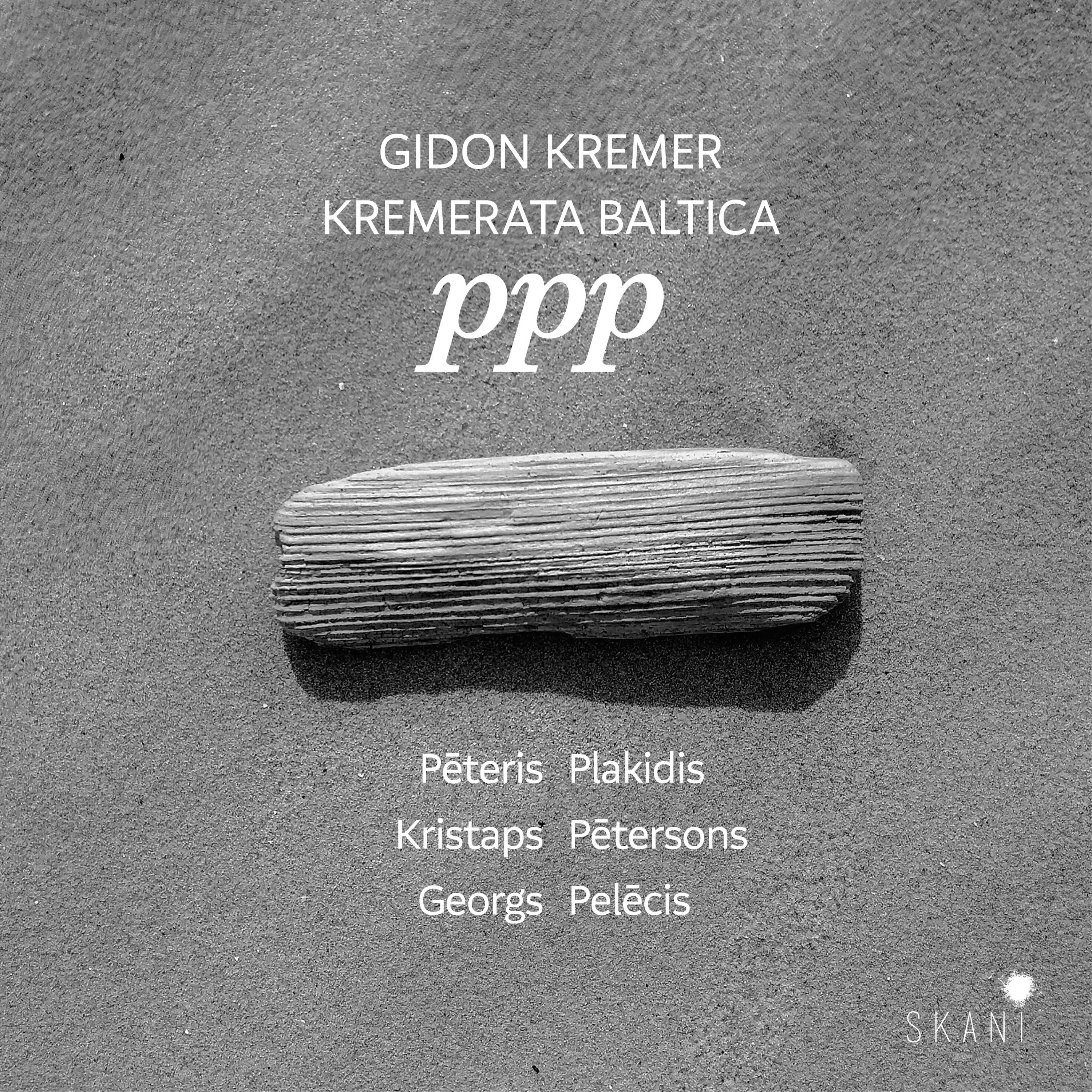Amid the celebrations of Gidon Kremer's 75th birthday last year, this is a good album which got away. Yes, we did cover his remarkable Wigmore Hall concert, overshadowed by the then imminent Russian invasion of Ukraine, and also a celebratory 21-CD retrospective set from Warner Classics. But such is Kremer's way of giving the slip to his minders and achieving long-term creative freedom, it is perhaps not surprising that there should be more. This review, if late, does happen (happily) to coincide with one of the works on the album already flying free and taking on a different life: movements from Georgs Pelecis' "Fiori Musicali" have just entered the repertory of Ballet Kiel in Northern Germany, with new choreography by Wubkje Kuindersma.
Kremer is mostly on this album as catalyst: his violin playing is to be heard on just four of its eleven tracks. That is because there is another agenda present, that of SKANi, essentially the recording arm of the Latvian Music Information Center, tasked with promoting work by Latvian composers. Both Peteris Plakidis and Georgs Pelēcis were born in 1947, which makes them direct contemporaries from the same year of birth as Kremer himself. Kristaps Pētersons (b.1982) is a bassist in Kremerata Baltica and his compositions are much more experimental, involving electronic sounds, always finding new and unexpected sonorities and contrasts. Of the two older composers, Plakidis inhabits that world where you can't tell if he is giving us a genuine folk melody or Stravinsky. Pelēcis is more of a classicist: he has written several armfuls of academic papers on counterpoint. Here, however, the results are heart-on-sleeve: "Vientuļā kalla" could be an encore for a string orchestra to play, or provide classy relaxation on a Classic FM playlist. The last track, the langorous "Kosmejas skumjas" (Cosmeia's sadness) is dreamlike and gorgeous with Kremer as soloist and the surprising presence of a vibraphone as the contrasting melodic voice.
Graham Rickson,
www.theartsdesk.com, 24/06/2023
_______________________________________
The title ppp of this engaging album refers not to quietness, but the surnames of its featured composers: Pēteris Plakidis, Kristaps Pētersons and Georgs Pelēcis. Yet, as diverse in style and mood as their collected works are, none are loud in any showy or overtly impassioned sense. Rather, there’s a kind of combined seriousness and playfulness which serves to mark 25 years of Kremerata Baltica with an understated generosity of spirit typical of its founder, the Latvian violinist Gidon Kremer.
All three composers are – or were – Latvian, with two born in Riga, 1947. The much-missed Plakidis (1947-2017) is represented by Kremer in duo with violinist Madara Pētersone. Their rendition of his Little concerto for two violins (1991) is both touching and subtly virtuosic in exploring, via the evolution of simple motifs, the idea of concerto as a form of joint song.
Pelēcis (b1947) is an expert on counterpoint, and his Three Pieces from Fiori Musicali suggests Frescobaldi. Yet it’s cyclic, melodic refinement – now mournful, now dancing – that most distinguishes ‘The Lone Calla’ (2017), ‘Dance of the Peonies’ (2020) and ‘Cosmea Melancholy’ (2020).
They are soulfully played by Kremer, Ukrainian vibraphonist Andrei Pushkarev and the Kremerata, whose Lithuanian contingent prove beguiling in Kristaps Pētersons’s coolly jazz-inflected Music for a Large Ensemble (2021). Born in Valmiera, 1982, Pētersons is also an excellent double bassist and his solo Ground and π = 3,14 (with fellow bassist Iurii Gavrilyuk, Pushkarov and electronics) prove especially intriguing, the latter with an off-beat, noirish sci-fi appeal.
There are moments of quietude, but never an absence of noise. Pētersons’s “Music for a Large Ensemble” (written for and performed by a Latvian subset of the Kremerata Baltica, the Kremerata Lettonica) begins in slow, almost ritualistic repetition, subverting the idea of largeness. However, what the composer describes as his initial “dead ends of sounds” are still relentless in their attempts to keep moving. This resolves in the final, and most substantial, movement, which begins in an orchestrating vein similar to Ravel’s “Boléro” before going completely off the map, roving in its pursuit of something unnamable—perhaps even nonexistent.
FONO FORUM, 11/2022

